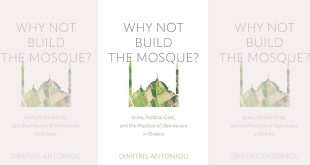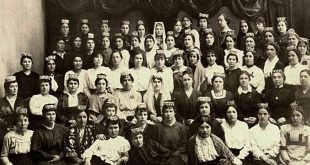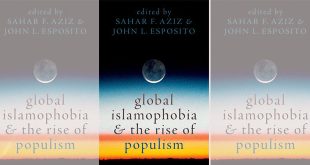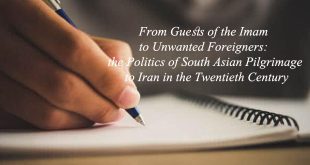A book in English in which its author, David Benjamin Keldani (a former priest of Islam who changed his name to Abdul-Ahad Dawood) reveals the prophecies contained in the Bible about the mission and advent of the last Prophets and Messengers, our Prophet Muhammad (peace and blessings of Allah be upon him)...
Read More »Ethnicity, Religion, and Muslim Education in a Changing World Navigating Contemporary Perspectives on Multicultural Schooling in the UK
This novel and contemporary anthology brings important topics about race, religion, and identity to the foreground to address the challenges facing Muslim schoolchildren today...
Read More »Lady Mary and Lady Fatima: Intertwined Paths of Grace and Compassion
Lady Mary and Lady Fatima is a groundbreaking contribution to interfaith scholarship, offering a profound comparative exploration of two of the most revered women in the Islamic and Christian traditions...
Read More »Why Not Build the Mosque? Islam, Political Cost, and the Practice of Democracy in Greece
Why Not Build the Mosque? tells the story of the Greek state’s centuries-long attempt to build a central mosque. After the fall of Ottoman Empire, Greek Orthodoxy entwined with Greek nationalism, and by the twentieth century, the state came to imagine Islam as incompatible with a Greek-speaking Orthodox Christian identity. And so as late as....
Read More »New Releases: The Charm of the Red Rose: A Moral Explanation of the Battle of Karbala
Drawing on both classical Shiʿa sources and contemporary moral philosophy, the book explores Imam Hussein’s choices through the lens of universal ethics, highlighting his relevance not only for Shiʿa Muslims but for all who seek moral clarity in times of injustice....
Read More »Muslim Female Religious Authority in Russia: How Mukhlisa Bubi Became the First Female Qāḍī in the Modern Muslim World
On 11 May 1917, the participants of the All-Russia Muslim Congress elected a woman, Mukhlisa Bubi, as a qāḍī (a Muslim judge) to the Central Spiritual Administration of Muslims of Inner Russia and Siberia. Granting legal authority to a woman at a central religious institution was unprecedented in the Muslim world. This article explores how this...
Read More »‘Who Is Hussain’ by Dr. Mehdi Saeed Hazari
This slim volume should be a welcome addition to the libraries of both Muslims and non-Muslims. It sheds light on the horrific events we see playing out in the world today as a consequence of events that took place in the vaults of Islamic history from the time of its formative early years in the Arabian peninsula....
Read More »New Releases: Ayatollah Seyed Ali Khamenei: The Life and Legacy of a Wise Leader
“Ayatollah Seyed Ali Khamenei: Life and Legacy of a Wise Leader” by Professor Saied Reza Ameli offers a rare and incisive portrait of one of the most influential figures in contemporary global politics and Islamic thought....
Read More »Global Islamophobia and the Rise of Populism
In recent years, Islamophobia has seen a disturbing global rise. Blaming Muslim minorities for economic, political, and social problems is an increasingly common rhetorical strategy for politicians in countries worldwide...
Read More »From Guests of the Imam to Unwanted Foreigners: the Politics of South Asian Pilgrimage to Iran in the Twentieth Century
In January 2020, Iran’s religious representative in India, Hojjat ol-Eslam Mahdi Mahdavipour, called for efforts to attract more Indian pilgrims to the shrine of Imam Reza in Mashhad, Iran, noting that out of 250 million Indian Muslims, only around 150,000 came as pilgrims yearly.....
Read More » Ijtihad Network Being Wise and Faithful Muslim in the Contemporary World
Ijtihad Network Being Wise and Faithful Muslim in the Contemporary World









